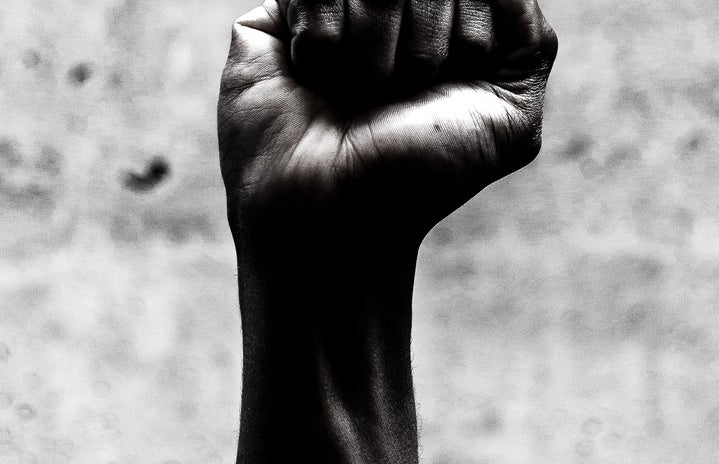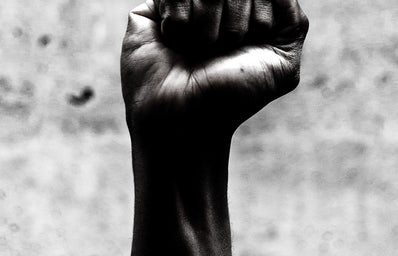“When you know better, you do better.”
Camille Williams-Taylor, Director of Education of the Ottawa-Carleton District School Board.
Black History Month (BHM) was first celebrated in Canada in 1995, after Jean Augustine’s crucial motion in Parliament to declare February BHM Canada-wide. Augustine was one of the first female Black Canadian Members of Parliament. She worked with the Ontario Black History Society to expand the legislation from city and and province, to federal recognition.
Carter Woodson, however, began the celebration and teaching of Black History in North America with the publication “Journal of Negro History” in 1916.
Since then, Black History Month has evolved to a celebration of the lives of black heroes in North America and the history of the black community around the world.
“It’s a lot easier for me to express different areas of my blackness [during BHM] without feeling like I have to justify it,” says Robiann Robinson, the administrative representative of the Black Student Alliance at Carleton.
According to Robinson, being black in a majority white surroundings takes a different shape during BHM celebrations. “The pressures soften during February.”
Robinson says February provides a chance for the conversation around black history to shift. However, Robinson expressed her disappointment that, “it’s the shortest month of the year.”
But the question remains: why is only one month of the year dedicated to Black history?
“I personally think that it’s bullshit,” says Robinson.
Sarah Onyango, the community outreach officer of Black History Ottawa, offers how she believes black people should be represented.
“The ideal situation is for us to not have Black History Month. Black people are black people all year round,” said Onyango. “They didn’t wait till February to help build this country, so they should be integrated throughout.”
According to Onyango, the “national narrative” of Canada is, “Oh, the French white people and the English white people”. To Onyango, this excludes all non-white people who suffered for the French and English to, “develop this country.”
Onyango referenced Africville, an African-Canadian village founded in the mid-18th century, north of Halifax, as an example of the public’s ignorance.
“Most Canadians outside Nova Scotia don’t know about Africville.”
According to the Candian Encyclopedia, the City of Halifax destroyed Africville in the 1960s. In 2010, the mayor of the Halifax Municipality Region apologized for the act many identified as racist.
Since the destruction of Africville, black voices seeking to be heard have become louder and are working towards a “change in behaviour” in Canada, according to Onyango.
It was only in December of 2019 that the Ottawa-Carleton District School Board (OCDSB) elected Camille Williams-Taylor, the first Black Director of Education in the history of East Ontario.
Onyango says this will make students feel empowered.
June Girvan, the President of Black History Ottawa, recently convinced the French Catholic school board and the OCDSB to achieve the goals of the United Nations’ International Decade for People of African Descent.
Their plan includes having more books about black history in school libraries, more black teachers in schools and “decreasing the rate of expulsion and suspension of our black children”, according to Onyango.
Black History Ottawa provides resources to teachers, but a general ignorance around prominent black personalities like Donald Moore and Carter Woodson remain, according to Onyango. She says this is due to a combination of intellectual laziness. In some cases, “it’s just outright racism”.
Williams-Taylor says she is, “quite optimistic” about matters of identity in schools because the Board is working on frameworks to create opportunities for students in highschools and postsecondary institutions.
She says BHM shows, “people’s identities have been recognized and valued, and everyone is part of a whole.”
Progress can be seen in the inclusion of black history in school textbooks.
“There is definitely an openness to learning,” says Williams-Taylor.
The celebration of Black History Month, “really boils down to the individual,” said Jimi Aribido, a black student studying political science at Carleton University.
To Aribido, BHM goes beyond celebrating black history in February and forgetting about it. “Every day I’m sort of celebrating and finding out new things about my history.”
Williams-Taylor said the celebration of black history is not necessarily restricted to February.
“The highlighted month informs the other nine months of the school year.”
Black communities have been pivotal in the construction of Canada, including lobbying against discriminatory laws and holding academic positions and public office to create change.
Onyango uses Donald Moore an an example, who founded the Negro Citizenship Association to allow West Indians to legally immigrate to Canada.
“We are completely woven into the narrative of this country and not just in a negative way,” says Onyango.
Despite discrimination and underrepresentation persisting in schools, Williams-Taylor says schools are “on the journey” towards an immersion of black history in curricula.
“It would be nice to be out of business because everybody, black and white and other people, recognize that black people have been here, black people continue to be here,” says Onyango.
The Canadian identity is not monolithic; instead built on the experiences of individuals who have lived and worked here. Black History Month provides Canadians a glimpse into one of the many cultures to shape this identity.
“I would encourage other people of colour and people of other backgrounds every day to try and open themselves and their minds to different cultures and different histories,” says Aribido.



